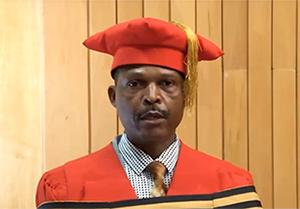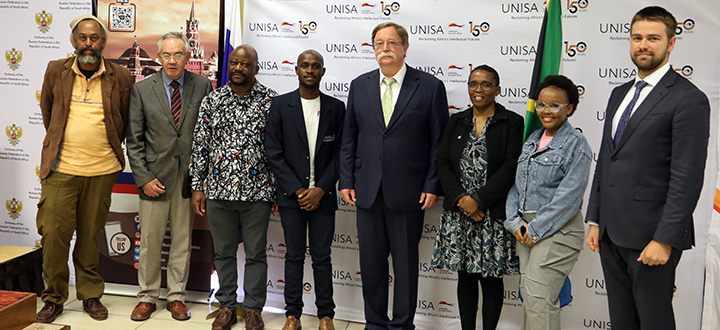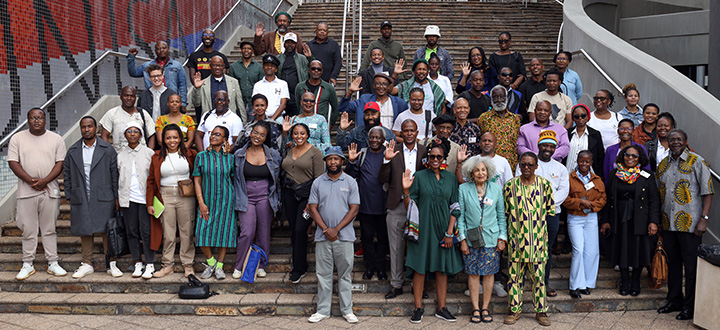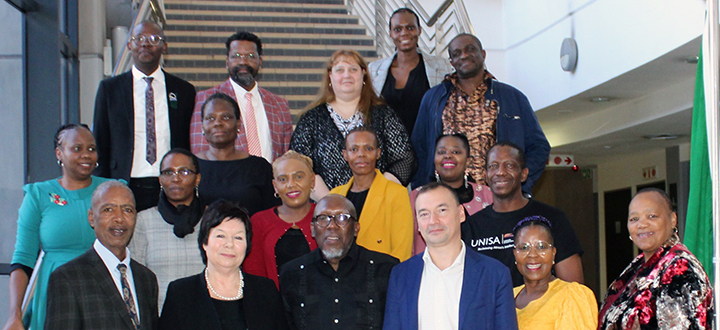College of Science, Engineering & Technology
Humble farm manure the key to addressing energy poverty

Prof Christopher Chintua Enweremadu
Prof Christopher Chintua Enweremadu of the Department of Mechanical and Industrial Engineering in the College of Science, Engineering and Technology, gave his inaugural lecture on 2 June 2021. It was entitled "Decentralised Renewable Energy (DRE) - A Veritable Tool for Addressing Energy Poverty".
Unequal access to electricity, environmental concerns surrounding the burning of coal for electricity production as well as the remoteness of rural areas are the driving factors that motivated Enweremadu’s research.
Towards energy equality
Enweremadu discussed the prospects of two major distributed renewable resources, namely farm manure and solar radiation, for a decentralised renewable energy programme for the provision of quality energy access to the non-electrified population.
Based on equality and with the expectation for improvement in the economy of the existing non-electrified households, the potential demands for energy (electrical and thermal) were assessed in his research and compared to the anticipated decentralised power generation from biogas and solar photovoltaic (PV) technology for all nine provinces of South Africa. He concluded that except for Gauteng and KwaZulu-Natal, farm manure could support the thermal energy requirements for cooking and water/space heating.
It could also support the combined thermal and electrical loads of the Western Cape and Free State. Similarly, decentralised solar PV power can support electrical loads in all provinces. His research contributes to one of the United Nations Sustainable Development Goals (specifically, SDG 7), whose target is to ensure access to affordable, reliable, sustainable and modern energy for all.
Peer praise
"In Prof Enweremadu, I see potential to be harnessed by Unisa – in the actualisation of United Nations Sustainable Development Goal 7," said Prof Michael Daramola of the University of Pretoria in responding to the lecture. "I also see an internationally acclaimed researcher, who is undoubtedly to acquire a National Research Foundation (NRF) A or B rating within the next five years," Daramola urged Unisa to continue providing an enabling environment for Enweremadu to achieve his goals.
Enweremadu has a C3 rating from the NRF, and has published over 80 journal articles, conference papers and book chapters. He has, moreover. graduated five master’s and doctoral students, and successfully mentored a postdoctoral fellow in the field of mechanical engineering.
It was indeed an insightful and thought-provoking lecture, with more than 350 attendees who engaged with Enweremadu and flooded the chat box with congratulatory messages.
Going forward, Enweremadu plans to focus more on innovation and commercialisation, and not just on producing research publications.
* Compiled by Dr Nozipho N Gumbi, Acting Marketing and Communication Specialist, College of Science, Engineering and Technology
Publish date: 2021-06-11 00:00:00.0

 Unisa's student leadership engage with Russian ambassador
Unisa's student leadership engage with Russian ambassador
 Re-igniting and re-imagining Pan Africanism, Afrocentricity and Afrofuturism in the 21st century
Re-igniting and re-imagining Pan Africanism, Afrocentricity and Afrofuturism in the 21st century
 Unisa and Russian State University for the Humanities explore collaborative opportunities
Unisa and Russian State University for the Humanities explore collaborative opportunities
 Young Unisa science stars join elite Lindau Nobel Laureate group
Young Unisa science stars join elite Lindau Nobel Laureate group
 Education MEC addresses Unisa autism seminar
Education MEC addresses Unisa autism seminar